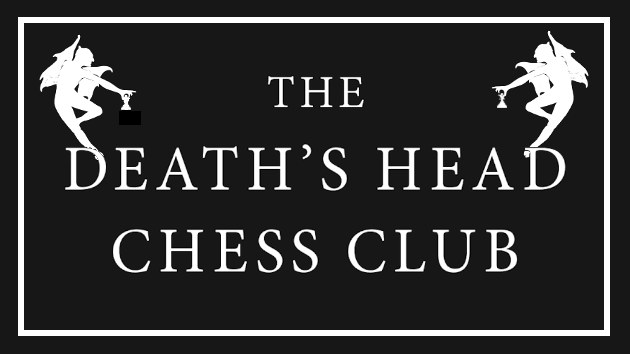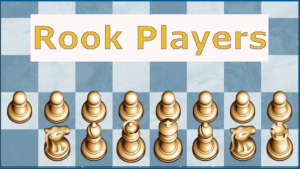
Bad Boys I
The cover image was modified from that of a novel of that name written by John Donoghue. The story, set in Auschwitz, is much deeper and serious than this article.
There has never been any doubt that chess attracts some peculiar individuals. Most are fairly harmless but others have attained an aura of notoriety and some even prison sentences.
Below is a handful of the most publicized bad boys who a some strong connection to chess.

Bad Boy I is the person dubbed by the newspapers as "the wickedest man in the world."
Aleister Crowley.
Edward Alexander Crowley taught himself chess while being tutored at Eastbourne (near Hastings.)
In his own words:
At Eastbourne, I had still no interest in games. I was still prevented from anything like intimate association with my fellow creatures. I was still ignorant of the existence of English literature and I became a first-rate French scholar without reading any French literature. In my play time I was either hunting flappers on the front, playing chess or climbing Beachy Head. My chess was almost entirely book learning and I was very much surprised to find myself the best player in the town. For although the local champion insisted on giving me pawn and more, I beat him so easily every time I met him that the odds might have been reversed without making much difference to the result. I edited a chess column in the Eastbourne Gazette and made myself a host of enemies by criticizing the team. I wanted to arise enthusiasm, to insist on study and practice and to make Eastbourne the strongest town in England. The result fell short of breaking up the club, but not very far.
Crowley's chess column in the "Eastbourne Gazette," entitled "Chess Notes" and written under the pseudonym Ta Dhuibh, followed the activities of the local chess group he had founded.

After he finished studying under Mr. Lambert at Eastbourne, Crowley entered Trinity College at Cambridge. He joined and eventually served as president of the Cambridge University Chess Club. Although he had contemplated becoming a professional player, when he attended a chess congress in Berlin in 1897, the dreary reality of the chess masters he observed quickly dissuaded him. By this time he was into mysticism and the occult.
Crowley was possibly one of the most misunderstood or least understood persons, around whom rumors and speculation swarmed like flies. Flouting most conventions, dabbling in impropriety and ignoring social mores, Crowley was far removed from the norm, but neither was he the personification of evii he was made out to be by the sensationalist journalists.

The above photo is almost universally given as Crowley (L) vs. Eduardo M. Pellen (R), Portuguese engineer from Lisbon whom Crowley visited in Sept. 1930 and who would, in 1936, be elected president of the Portuguese Chess Federation.
However this is not the case.
Marco Passi uncovered that this photo was taken in the Gambit Chess Rooms in London in February of 1930 and Crowley's opponent is Robert A. Starr, a high raking member of the Ordo Temli Orientis which Crowley led from 1923-47. An original photographer's print was discovered in the Order's archives bearing this information in Starr's handwriting.
Here is a simul game between Joseph H. Blackburne and our young anti-hero with notes by Crowley himself:
Crowley also had aspirations as a problemist. Below is a "Self-Mate" problem from the "BCM" December 1893:
 as well as a two-mover from his chess column in the "Gazette."
as well as a two-mover from his chess column in the "Gazette."
The "Washington Post," May 28, 1916:




Denker states:
A scion of a socially prominent Philadelphia family, Norman seemed sprinkled with gold dust. His father Herbert Whitaker, was a noted methematics teacher, while his mother enjoyed repute as a champion whist player. At on of Philadelphia's outstanding high schools, he served as president of the student senate, vice-president of his class (1908), president of the engineering club, vice-predident of the debating society, proesident of Phi Sigma fraternity and, to be sure, president of the chess club.
Springboarding from this fairytale beginning, Whitaker studied law at Georgetown Law School after which he worked as a patent attorney in D.C. Knowing the law, he then chose to ignore it.
Once WWI started, Whitaker also started -moving around, trying to stay one step ahead of the draft notice. Less than a week after the war ended, he appeared at Fort Dix, N.J . and served one day in the army before being discharged for poor vision.
A few years later he, his brother and two sisters were arrested for transporting stolen cars across state lines - as part of an insurance fraud scheme - for which he was disbarred and sentenced to two years as Leavenworth.
Soon after his release from prison, he scammed the anti-Communist National Civic Organization out of $20,000 by pretending to be the head of the Soviet secret police in the U.S. to sell them phony information.
His most notorious scam (with his associate Gaston B. Means) was to bilk Evalyn Walsh Mclean out of $100,000, and then an additional $35,000, by pretending to be the kidnapper of Charles Lindberg's infant son. He was found guilty on the $35,000 scam and sentenced to two years in Alcatraz.
At age 60 he was charged with 9 counts of molesting a 12 year old girl, reduced to indecent liberties with a minor, he was sent to Moyamensing Prison near Philadelphia.
Denker wrote that Whitaker himself noted that "he robbed only the rich because there was so little to be had from the poor." Denker also wrote that when Whitaker visited the offices of "Chess Review," Al Horowitz would tell him, "Come on in, Norman, and pull up an electric chair."
Never having shown any remorse or empathy for his victims, Whitaker, with poetic justice, died penniless and full of self-pity.
At the Eighth American Chess Congress, played in Atlantic City in 1921, Whitaker came in second behind David Janowski, whom Whitaker beat in their individual game. He also beat Frank Marshall.



Bad Boy III is the rather well known novelist,
 Jeffrey Archer, 1977
Jeffrey Archer, 1977
Jeffrey Archer figured in many sordid scandals and legal issues throughout his charmed life but has been able to bounce back from it all, including bankruptcy and prison. Prison was probably his lowest point.
The July 20, 2001 edition of the "New York Times" wrote:
Lord Archer was found guilty of creating false diaries and concocting a bogus story to win a 1987 trial over whether he had slept with a prostitute to whom he paid $3,500 in hush money. He claimed he had never met her, and the case ended up in court because he sued the newspaper carrying the report, The Daily star, and obtained an $800,000 libel judgment. The Star said today it would seek a $3 million from Lord Archer in a civil action.
. . .
Lord Archer-super-Mare, as he is known formally, has been the subject of fiercely denied accusations over the years ranging from serial philandering to insider trading to shoplifting in Canada to fabrication war hero credentials for his father and academic achievements and degrees for himself. He had to resign from politics in disgrace on three occasions --in 1974 as a member of Parliament, in 1986 as deputy chairman of the Conservative Party ad in 1999 as a Tory candidate for mayor of London when the current case arose.
He reacted to that fall from grace in the kind of risky and brash fashion that has made him one of Britain's longest-running tabloid personalities.
On July 22, 2003, almost exactly 2 years later, the "Sydney Morning Herald" wrote:
"British novelist and disgraced politician Jeffrey Archer has been freed on parole after serving half of a four-year jail sentence for lying in a libel case over a prostitute. "
But it was his 1974 bankruptcy "after Aquablast, a fraudulent Canadian cleaning firm in which he had invested his life savings, goes bust" [The Guardian" July 19, 2001] that inspired him to start writing novels, a career change that proved to be as lucrative as it was natural to him.
The Chess Connection
While that could be the title for a book, here it's just the introduction to some of Archer's writings involving chess.
 A 1988 "The Mail on Sunday" TV commercial
A 1988 "The Mail on Sunday" TV commercial
Alexandra Konstenuik's chess news blog carries the entire text of Archer's short story "Checkmate," [from the anthology "A Twist in the Tale"] referred to there as his "strip chess short story." An excerpt:
She wore black high-heeled velvet shoes and a tight-fitting black dress that stopped l enough above the knees to reveal the most perfectly tapering legs. As my eyes continued their upward sweep they paused to take in her narrow waist and slim athletic figure. But it was the oval face that I found captivating, slightly pouting lips and the largest blue eyes I've ever seen, crowned with a head of thick, black, short-cut hair hat literally shone with lustre. Her entrance was all the more breathtaking because of the surroundings she had chosen.
Heads would have turned at a diplomatic reception, a society cocktail party, even a charity ball, but at a chess tournament …
However, Joseph McLellan in the "Washington Post" claimed:
"... his chess terminology in "Checkmate" reads like gibberish to this lifelong player"
from the Jeffery Archer official website:
The Red King’ [from the anthology "Cat O'Nine Lives"] is a tale about a con man who discovers that an English Lord requires one more chess piece to complete a set that would be worth a fortune.






